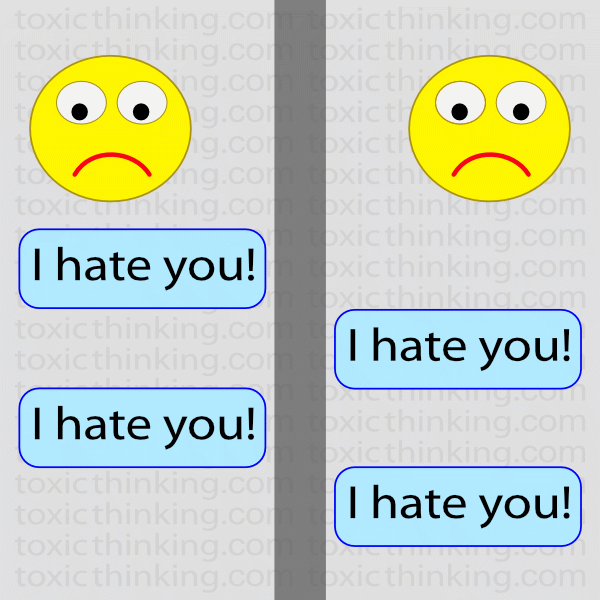Many thousands of years ago, when our ancestors were living in forests, the survival of an individual would have depended on support from the community. If one member of the community was being threatened by a big bad wolf, the rest of the members of the community would have attacked and chased that wolf away. The combined strength of a community was much stronger than the strength of an individual. Therefore, it would have been important, from a survival point of view, for one to be “liked” by the other members of one’s community.

It is possible that those characteristics from our ancient past persist in our minds today, subconsciously encouraging us to behave in a way that makes people “like” each other. For this reason, when one communicates with people around oneself, one’s mind will nudge one to be decent and polite.
However, when one communicates with people using online methods, one’s mind may act differently from how it acts when one communicates with people physically near oneself. When one is online, one might be somewhat anonymous as one’s online user name may not be real and one’s face may not be visible to others. In such a situation, as one is anonymous, one’s mind may no longer be worried about the consequences of “not being nice” and this may make one inadvertently be “nasty” to the people one is communicating online with.
Psychologists call this phenomenon “online disinhibition”, but I prefer to call it “online nastiness”, which I think is a bit easier to pronounce!

In today’s internet-driven world, we all do a lot of communicating via online messaging etc, making it all the more important to see if our mind is engaging in online nastiness. Below is a short example of how online nastiness can manifest itself.
Amit is normally a very polite and gentle person. He is against animal cruelty and belongs to an online forum dedicated to those interested in being vegetarian. In this online forum, the real names of the members were not displayed i.e. everyone was anonymous.
One day, someone who was clearly against vegetarianism, joined the forum and started putting posts that implied that being vegetarian was a bad and stupid thing. Amit got infuriated when he saw these posts and wrote some very nasty things about that person online.
Later, once Amit’s emotions cooled down, he realised that while he did not agree with the person putting such posts in the forum, he should not have used such nasty language. He realised that when being anonymous, it was easy to end up being quite nasty.
Of course, regardless of whether one is anonymous or not, one should really try and avoid being nasty to anyone. However, when one is anonymous, it is even more important to be careful to prevent nastiness.
Even when we reveal our real names on social media and online forums, the fact that we are not physically in front of the person we are communicating with can give us a false feeling that we are somewhat anonymous. This also can, unless we are vigilant, make us say unnecessarily harsh things.